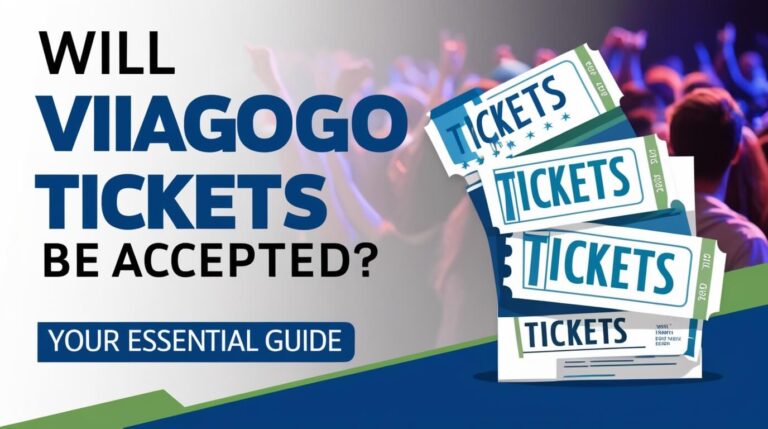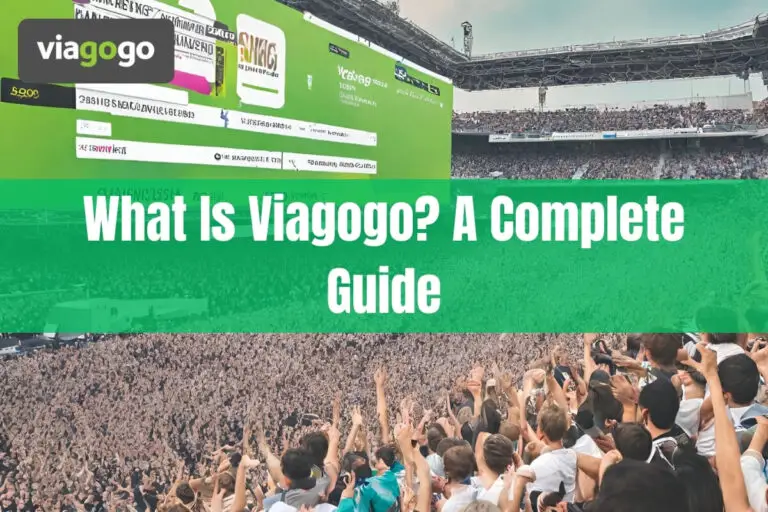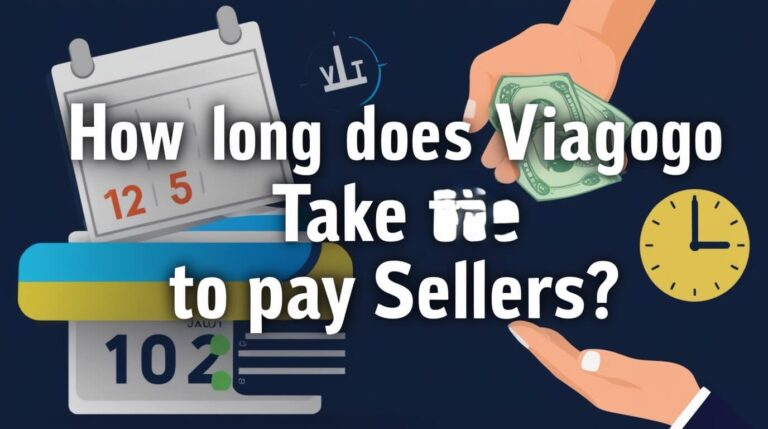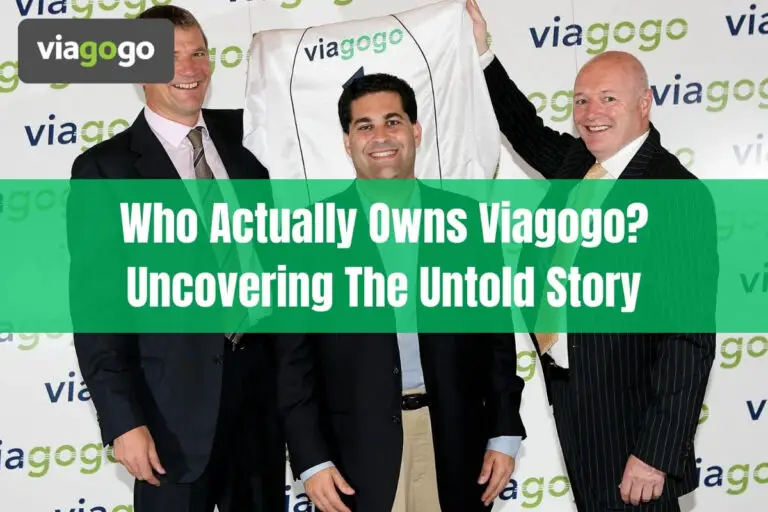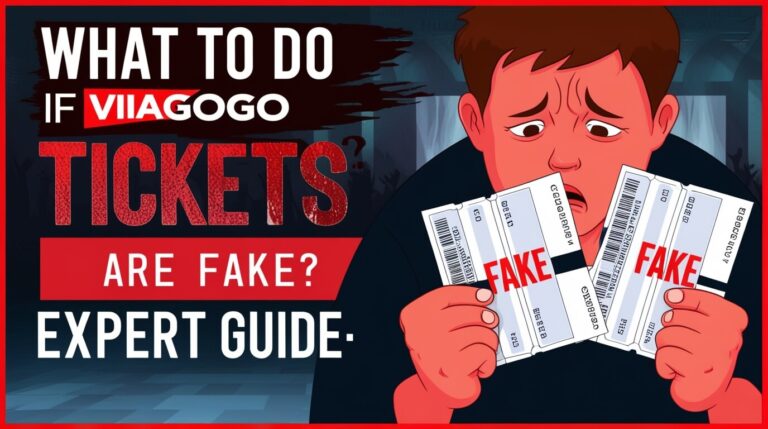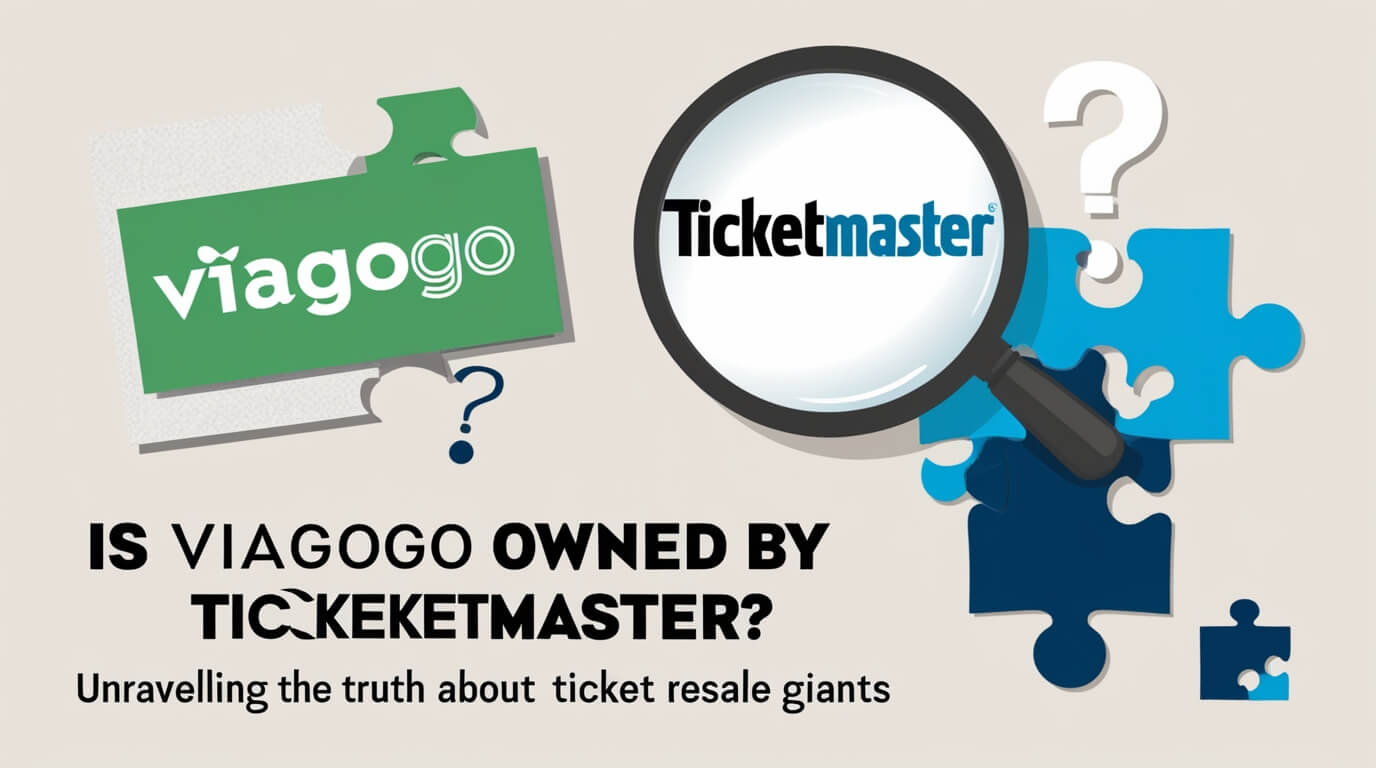
Let’s clear this up right away: Viagogo is not owned by Ticketmaster. These are two separate companies with different owners and business models.
The world of online ticket sales can be confusing. With so many platforms out there, it’s hard to know who owns what. One question that often pops up is whether Viagogo is owned by Ticketmaster.
But that’s just the tip of the iceberg. The ticketing industry is complex, with many players and constant changes. This article will explore Viagogo, Ticketmaster, and the wider ticketing landscape. We’ll look at who owns these companies, how they operate, and what it means for you as a ticket buyer.
The Ticketing Industry Landscape
Major Players in Online Ticket Sales
The online ticket sales market is huge and growing. It’s not just about concerts and sports anymore. You can buy tickets for everything from Broadway shows to local comedy nights online.
Ticketmaster is the biggest name in primary ticket sales. They sell tickets directly for venues and event organizers. But they’re not alone. AXS, Eventbrite, and SeatGeek are also major players.
Then there’s the secondary market. This is where tickets are resold, often at higher prices. Viagogo, StubHub, and Vivid Seats are big names here. Each has its approach and reputation.
Primary vs. Secondary Ticket Markets
Understanding the difference between primary and secondary markets is key. The primary market is where tickets are first sold. Prices are set by the event organizer. Ticketmaster often handles these sales.
The secondary market is where tickets are resold. This is where Viagogo operates. Prices here can be higher or lower than the original price, depending on demand. It’s a bit like a stock market for tickets.
Viagogo: A Closer Look
Viagogo’s Origins and Founder
Viagogo wasn’t born yesterday. Eric Baker founded the company in London back in 2006. Baker isn’t new to the game. He co-founded StubHub in the U.S. before starting Viagogo.
The idea was simple: create an online marketplace for ticket resale. It quickly grew beyond the UK, expanding across Europe and beyond.
Viagogo’s Business Model
Viagogo doesn’t sell tickets directly from venues or organizers. Instead, it’s a platform where people can resell their tickets. Sellers list their tickets, and buyers purchase them through Viagogo.
The company makes money by charging fees to both buyers and sellers. These fees can be substantial, often leading to higher prices than the original ticket cost.
Controversies Surrounding Viagogo
Viagogo has had its share of controversies. Many revolve around high prices and unclear fees. Some buyers have complained about hidden charges appearing at checkout.
There have also been issues with invalid tickets being sold on the platform. This has led to legal challenges in several countries. Australia, for example, fined Viagogo millions for misleading consumers.
Ticketmaster: The Dominant Force in Ticketing
Ticketmaster’s History and Growth
Ticketmaster has been around since 1976. It started as a small software company for ticket sales. Over time, it grew into the giant we know today.
The company revolutionized ticket sales by creating a computerized network. This allowed real-time inventory updates across multiple locations. It was a game-changer for the industry.
Live Nation Merger and Market Position
In 2010, Ticketmaster merged with Live Nation, a major concert promoter. This created a powerhouse in the live entertainment industry. The merged company, Live Nation Entertainment, controls a large chunk of the primary ticket market.
This merger raised antitrust concerns. Critics argued it gave the company too much power over ticket prices and artist management.
Ticketmaster’s Resale Platforms
Ticketmaster isn’t just about primary sales anymore. They’ve entered the resale market too. Their platform, Ticketmaster Resale, allows ticket holders to resell their tickets.
This move put Ticketmasters in direct competition with companies like Viagogo and StubHub. It’s part of a trend where the lines between primary and secondary markets are blurring.
Ownership of Viagogo: Separating Fact from Fiction
Viagogo’s Current Ownership Structure
So, who owns Viagogo? It’s not Ticketmaster, that’s for sure. Viagogo is privately owned. Eric Baker, the founder, still plays a significant role in the company.
In recent years, Viagogo’s ownership structure has changed. This is largely due to its acquisition of StubHub, which we’ll discuss next.
The StubHub Acquisition
In 2019, Viagogo announced plans to buy StubHub from eBay for $4.05 billion. This was a major shake-up in the secondary ticket market. The deal closed in 2020, making Viagogo the parent company of StubHub.
This acquisition faced scrutiny from regulators. There were concerns about the combined company’s market share, especially in the UK.
Relationship Between Viagogo and Ticketmaster
Viagogo and Ticketmaster are competitors, not partners. They operate in the same industry but with different focuses. Ticketmaster is primarily a primary ticket seller, while Viagogo focuses on resale.
That said, both companies now have a presence in both primary and secondary markets. This has led to increased competition and some overlap in their services.
The Viagogo-StubHub Merger
Details of the $4 Billion Deal
The Viagogo-StubHub deal was huge news in the ticketing world. At $4.05 billion, it was one of the largest deals in the industry’s history.
The merger brought together two of the biggest names in ticket resale. It gave Viagogo a strong presence in North America, where StubHub was dominant.
Regulatory Challenges and Resolutions
The merger didn’t go smoothly at first. Regulators, especially in the UK, had concerns about market dominance. The combined company would have controlled over 90% of the UK’s secondary ticket market.
To address these concerns, Viagogo agreed to sell StubHub’s business outside North America. This allowed the deal to go through while maintaining competition in key markets.
Impact on the Secondary Ticket Market
The merger created a giant in the secondary ticket market. It changed the competitive landscape, especially in North America. Some worry this could lead to higher prices for consumers.
Others argue the combined company can offer better service and more reliable transactions. The full impact of the merger is still unfolding.
Comparing Viagogo and Ticketmaster
Business Models and Revenue Streams
Viagogo and Ticketmaster have different core business models. Viagogo is primarily a resale platform. They don’t sell tickets directly from venues or organizers. Their revenue comes from fees charged to buyers and sellers.
Ticketmaster, on the other hand, is primarily a primary ticket seller. They work directly with venues and event organizers. They also have a resale platform, but it’s not their main focus.
Geographic Presence and Market Share
Ticketmaster has a strong presence in North America and many other parts of the world. They’re the dominant player in primary ticket sales in many markets.
Viagogo, especially after acquiring StubHub, has a global presence in the resale market. They’re particularly strong in Europe and now have a major foothold in North America.
Consumer Experiences and Criticisms
Both companies have faced criticism from consumers. Ticketmasters has been criticized for high fees and technical issues during high-demand sales.
Viagogo has faced more severe criticism. Issues include unclear pricing, invalid tickets, and difficulties getting refunds. These problems have led to legal action in several countries.
Legal and Regulatory Challenges
Viagogo’s Legal Battles Across Countries
Viagogo has faced legal challenges in multiple countries. In Australia, they were fined for misleading consumers about ticket prices and availability.
The UK’s Competition and Markets Authority (CMA) took action against Viagogo for breaching consumer protection laws. This led to changes in how Viagogo displays pricing information.
Ticketmaster’s Antitrust Concerns
Ticketmaster’s merger with Live Nation raised antitrust concerns. Critics argue the combined company has too much control over the live entertainment industry.
There have been investigations into whether Ticketmaster uses its market position unfairly. This includes questions about their relationships with venues and artists.
Government Interventions in Ticket Resale
Many governments have taken steps to regulate ticket resale. Some have banned or restricted the resale of tickets above face value. Others have focused on improving transparency in pricing.
These regulations affect both Viagogo and Ticketmaster. They’ve had to adapt their practices in different markets to comply with local laws.
The Future of Online Ticket Sales
Technological Innovations in Ticketing
The ticketing industry is constantly evolving. New technologies are changing how tickets are bought, sold, and used. Mobile ticketing is becoming more common, reducing paper waste and ticket fraud.
Blockchain technology is also entering the scene. It could provide more secure and transparent ticketing systems. This might help address some of the issues in the secondary market.
Potential Industry Consolidation
The Viagogo-StubHub merger might not be the last big deal in the industry. There’s potential for further consolidation as companies look to grow and compete.
This could lead to fewer, larger players dominating the market. It’s something regulators will be watching closely.
Consumer Protection Measures
Improving consumer protection is a key focus for the future. This includes clearer pricing, better verification of tickets, and stronger refund policies.
Both regulators and companies are working on these issues. The goal is to make ticket buying safer and more transparent for consumers.
Making Informed Choices as a Ticket Buyer
Understanding Ticket Resale Risks
Buying tickets on the secondary market can be risky. Prices can be much higher than face value. There’s also a risk of buying fake or invalid tickets.
It’s important to understand these risks before making a purchase. Know what you’re buying and who you’re buying from.
Tips for Safe Secondary Market Purchases
When buying resale tickets, always use reputable platforms. Look for buyer guarantees and clear refund policies. Be wary of deals that seem too good to be true.
Check the details of your tickets carefully. Make sure they match the event you want to attend. If possible, verify the tickets with the venue before the event.
Alternatives to Major Resale Platforms
Consider looking beyond the big names like Viagogo and Ticketmaster. Fan-to-fan ticket exchange groups can be a good option. Some artists and venues also offer official resale platforms.
Local ticket shops or box offices can sometimes have tickets available, even for sold-out shows. It’s worth checking all your options before turning to the secondary market.
Navigating the Complex World of Online Ticketing
The ticket-buying world is complex. Viagogo and Ticketmaster are just two of the many companies involved. They’re separate but both are important in how we get tickets.
Understanding these companies helps you buy smarter. Do your homework and know the risks. Don’t just go for the cheapest or easiest option. Sometimes waiting pays off.
With care, you can get tickets to events you want without overpaying or getting scammed. The industry keeps changing. New tech and rules will shape it. As buyers, we can push for better practices by making smart choices.

